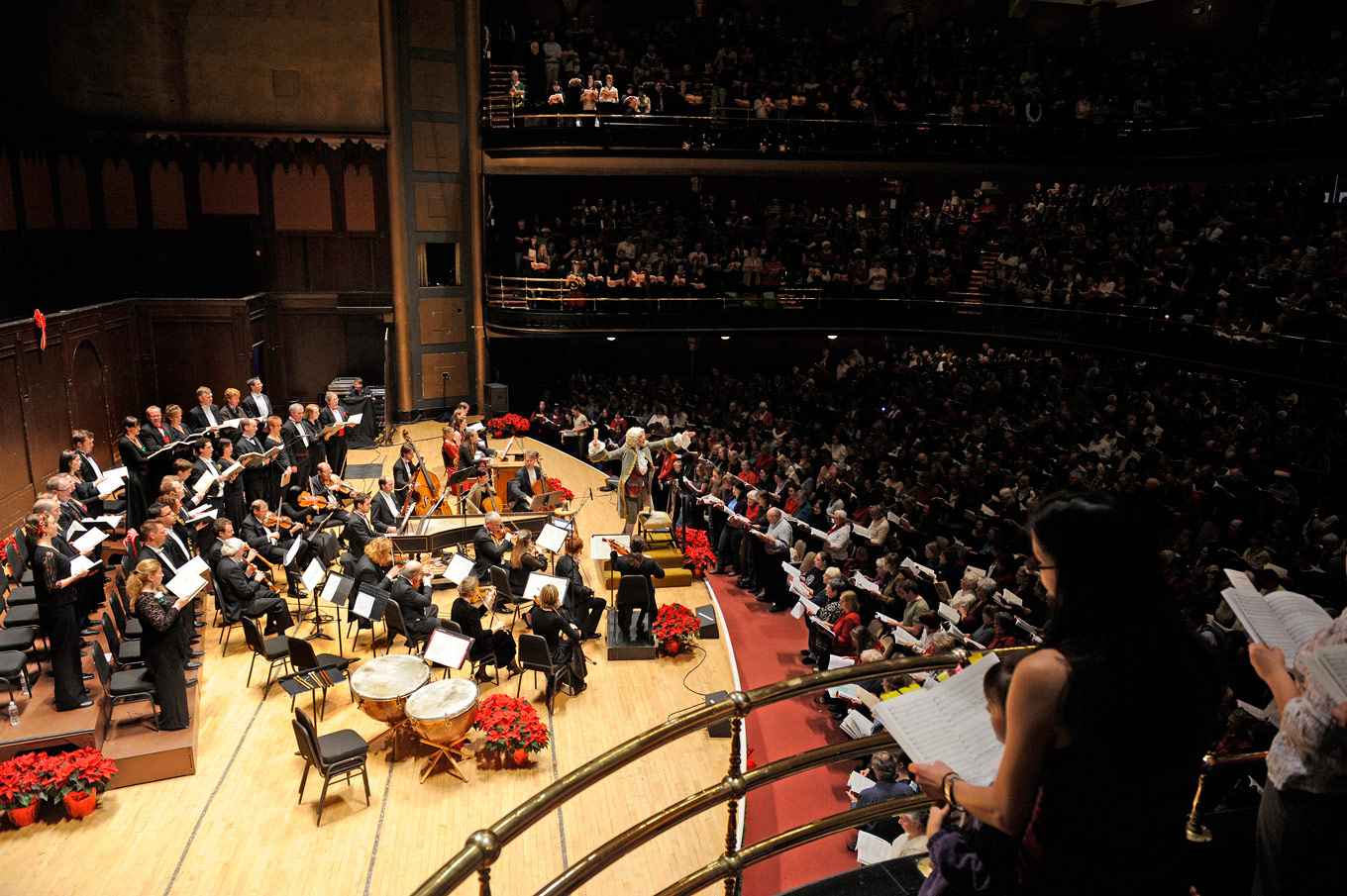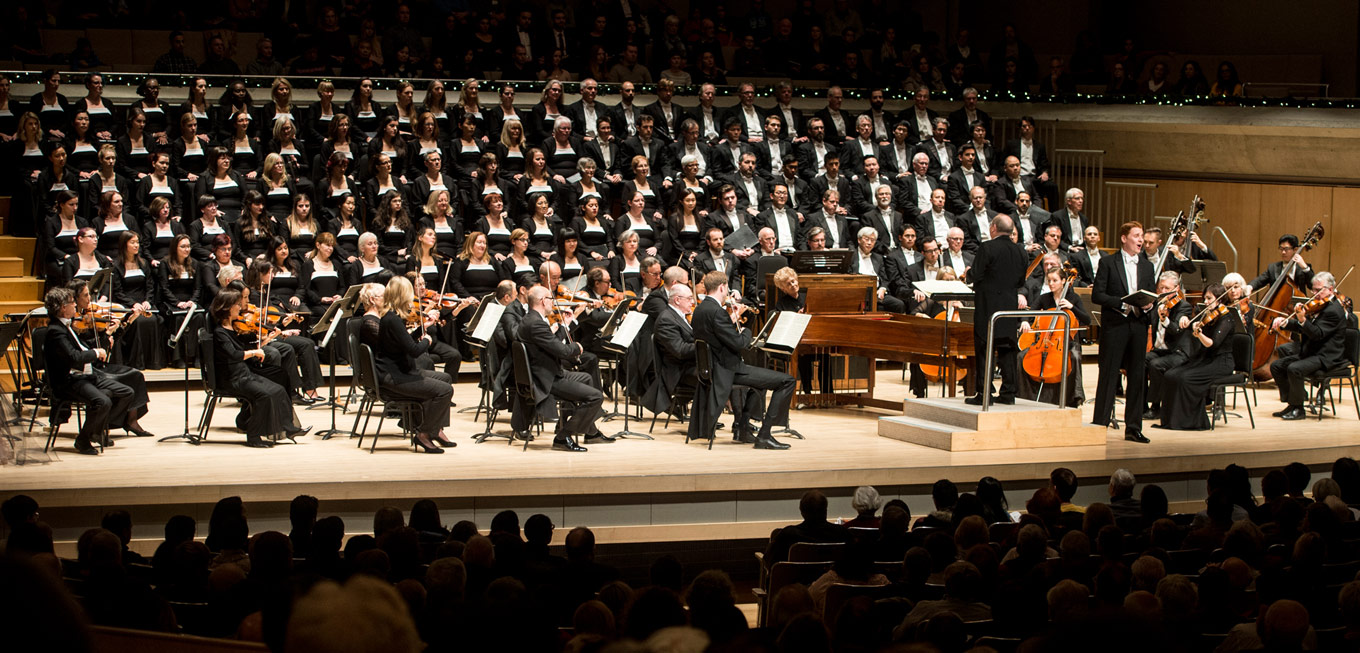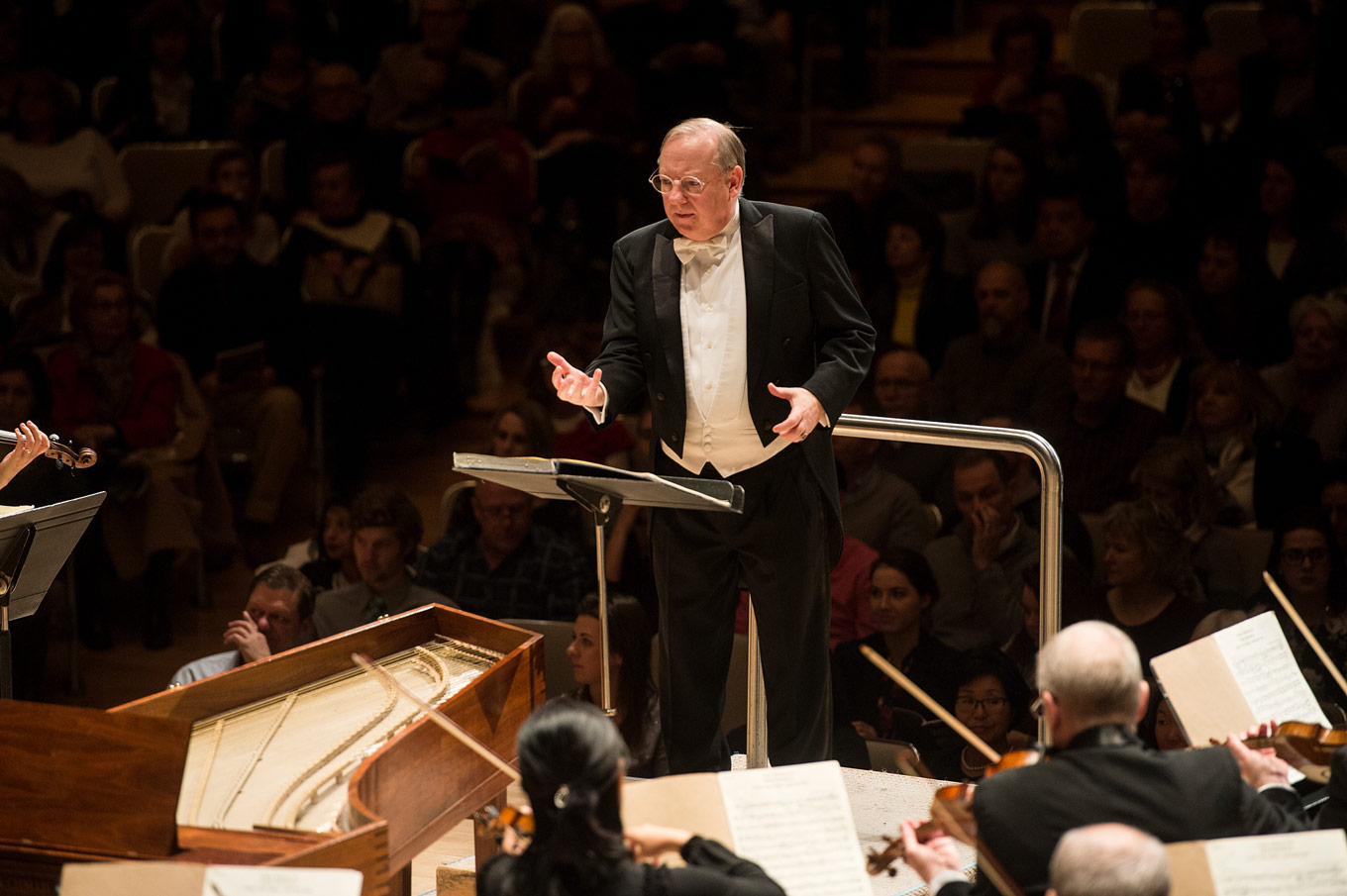
He said/She said: a tale of two Messiahs
ReviewGreg: Jenna’s back in Toronto, and all is right with the world. This time last year we were in the throes of our own Messiah madness, so we thought it only perfect to jump with two feet into this year’s offerings.
Jenna: Just 48 hours after arriving in chilly Toronto, Greg Finney and I were settled in to hear the first of our two scheduled performances of Handel’s Messiah.
We started with Tafelmusik’s annual Sing-Along Messiah, which this year celebrated 30 years of Ivars Taurins’ donning his Herr Handel costume and leading his orchestra, chorus, soloists Amanda Forsythe, Krisztina Szabó, Colin Balzer, and Tyler Duncan - not to mention the whole of Massey Hall - through judicious highlights of the 275 year-old staple of the Christmas season.
Greg: Massey Hall was packed. It was awesome. Herr Handel was welcomed to the stage with all the flair and fervour of the biggest glam-rock superstar. It was heartening to see that kind of reaction. After a few housekeeping announcements disguised as a sketch with Handel, The Earl of Sandwich (apparently it’s important to know that it’s pronounced [‘samɪtʃ]), and a silver tray of what I later found out to be actual turkey sandwiches, we had a quick warm-up and were off to the races.
Jenna: Tafelmusik brought a sense of play to Handel’s music, indulging in the wordless drama of the orchestra. Amanda Forsythe sang a blindingly fast “Rejoice” with crystal-clear coloratura, Szabó a grave “He was despised”, Balzer a hopeful “Comfort ye”, and Duncan a virile “The trumpet shall sound”. And on top of the high musical standards and the kitschy-yet-charming Handel gags, the Sing-Along element seemed to pile tradition upon tradition; there was a nostalgia and a joy about the collective performance, where the common voice blends with the trained, and everyone seems to gather inside Massey Hall with their own personal histories of Handel’s Messiah on their sleeves.

Greg: The soloists were phenomenal. Beautiful extended ornaments were everywhere, but didn’t pull from Taurin’s - I mean Handel’s - pace. The tempi were sprite, lyrical and engaging. Amanda Forsythe gave one of the most amazing renditions of “Rejoice” I’ve ever heard. Her lightning fast and cleanly executed colartura brought the house down. Szabó sang a gorgeous line with a brightness in the lower register that resonated like wildfire through Massey Hall. Duncan’s “The trumpet shall sound” shook the rafters and Balzer’s “Ev’ry valley…” was intricate and precise.
The choruses were something else entirely. Once you get over the fact that 2700 people are singing “And the Glory of the Lord” together, you realize that there’s some pretty dastardly chorus coloratura, and 2700 people are going to do it with you. And it actually didn’t sound half bad. The high Gs for the sopranos (of which there may easily have been 1500 in my totally scientific approximation with no research whatsoever) in the Hallelujah Chorus was pretty intense in the best way possible.
Jenna: In a surprisingly large contrast, Greg and I then caught what we called “Big Fat Messiah” at Roy Thomson Hall, with Nicholas McGegan conducting the Toronto Symphony Orchestra, the Toronto Mendelssohn Choir, and soloists Yulia Van Doren, Abigail Levis, Isaiah Bell, and Daniel Okulitch.
The TSO’s “big fat performance” featured a near-perfect performances from all four soloists, and a full symphonic sound from the choir and orchestra (despite the acoustic failings of Roy Thomson Hall). One couldn’t have asked for cleaner coloratura, more tasteful ornamentations, or any other must-have that enthusiastic Messiah-lovers crave. The tradition, in this case, was to assemble excellence in a large, roomy concert hall.

Greg: Then on Monday the “Big Fat Messiah”, the perfectly traditional performance in Roy Thomson Hall. The orchestra was in top shape and drove home McGegan’s tempi, some of which were surprisingly fast. The massive Toronto Mendelssohn Choir (which was my first singing gig in Toronto, back in 2005⁄2006) sang well, with surprisingly crisp and clear diction for their large numbers.
I loved Isaiah Bell’s “Comfort ye”. He was suave and debonair, but most of all, comforting. Van Doren’s voice was a sparkle of light whenever she sang. Okulitch dazzled with a bombastic “Why do the nations so furiously rage together?” I was really impressed with Abigail Levis and her low register. It was still bright and warm and just as agile and active as her upper register. I loved her “O thou, that tellest good tidings from Zion”. Finally, one of the highlights for me was watching how much fun McGegan was having conducting the work. He was playful, joyful, and reverent all at the same time.
Jenna: The difference between the two Messiahs seemed to lie beautifully in their respective Hallelujah Choruses. With Tafelmusik and the singers-along, that moment seemed to bubble with excitement, bringing out a bold voice in even the meekest of amateur singers, as though our collective subtext was, “I know this part!” The TSO’s Hallelujah felt climactic, and with gravitas; there seemed something ceremonial about the standing, silent audience (excepting a few hummers-along), leaving the music-making to the experts and finding community in our shared (and subtle) experience.

Jenna: Perhaps it was the return home after our long stay in London, England, and perhaps it was the inevitable warmth and nostalgia that comes with Handel’s infamous music; Tafelmusik brought out the humanity in Messiah, and the TSO gave us the grandeur.
Greg: What do you think, Schmop-Tops? Next year, should we go for four Messiahs in a row?


Comments